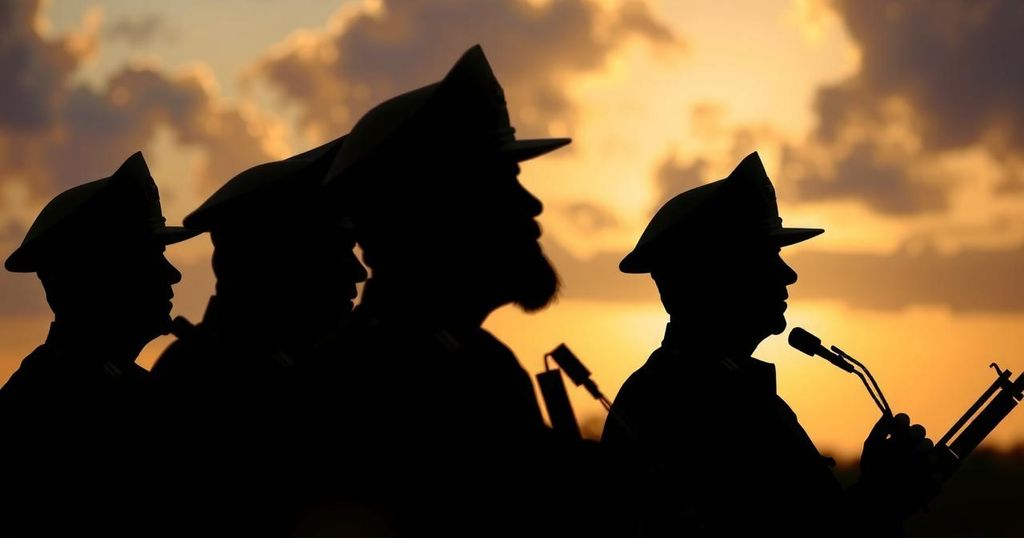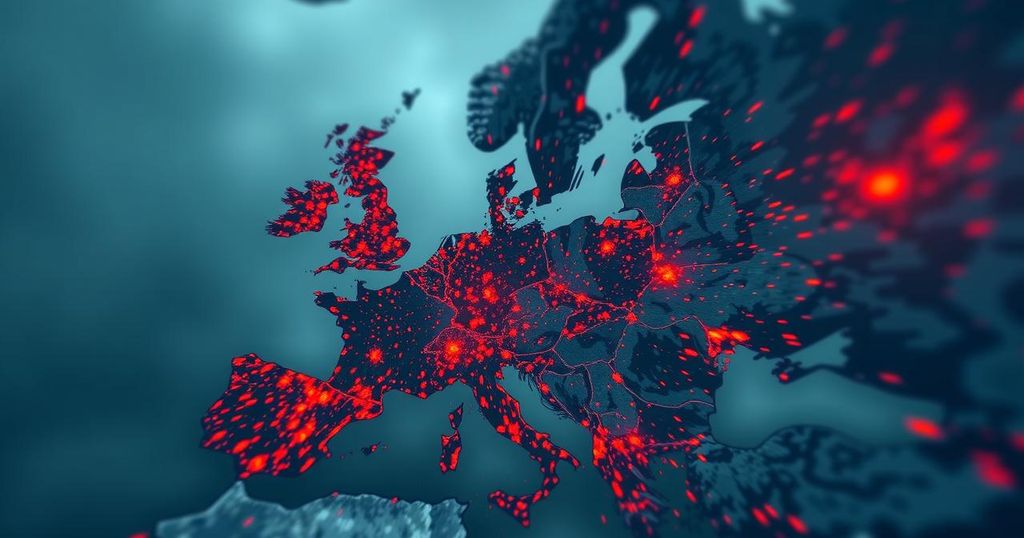Mali: Wagner and Junta Leaders Confront Embarrassing Defeats Amid Rising Terrorism
Recent terrorist attacks in Bamako, attributed to the insurgent group JNIM, have exposed the Malian junta’s inability to ensure security, leading to casualties even among Russian mercenaries. Opposition leaders criticize the junta’s focus on personal security rather than national safety, heightening concerns about the effectiveness of the Malian armed forces. As insurgent activities escalate, the situation poses serious risks for both domestic stability and international alliances.
Recent assaults on the Malian capital, Bamako, have underscored the junta’s failures in maintaining national security and controlling terrorist factions. These incidents, which have resulted in casualties even among Russian mercenaries, indicate that insurgents have clearly sent a warning to the government led by Assimi Goita. Opposition leader Mohamed Ag Ahmedou articulated a dire assessment: “The triple terrorist attack by JNIM… is a strong message to Assimi Goita’s autocratic junta that Mali is falling to terrorism. Mali is descending into chaos due to the inefficiency of our Malian armed forces.” The escalated attacks reveal that the terrorist organization JNIM, while the junta concentrates its military efforts against the Tuareg population, is effectively targeting state institutions within Bamako. Concerns regarding the priorities of the Malian armed forces are amplified. Mr. Ahmedou further questioned, “How can the country be secured if each putschist colonel has an entire battalion dedicated to his personal protection?” This critique reflects a broader sentiment that the military leadership is more focused on personal preservation than on the welfare of the nation. Amid these security challenges, Russia’s unwavering support for the Malian junta now appears precarious, as recent casualties among Russian fighters have raised alarms back home, potentially echoing Russia’s earlier setbacks in places like Mozambique. The turbulent situation in Mali seems increasingly untenable, mirroring previous instances of Wagner Group failures elsewhere. In a related narrative, Islamic militants have intensified their operations, marking a significant shift as they directly assault key military installations. The attack specifically targeted the airport and the gendarmerie school in Bamako, showcasing the vulnerability of the Malian security forces. Reports indicate that the death toll may be much higher than officially stated, with opposition sources claiming upwards of thirty casualties among soldiers and gendarmes. General Oumar Diarra, head of the Malian army, attempted to reassure the public by stating that the attackers had been “neutralized” and that the security situation was “under control.” Nevertheless, calls for increased vigilance among the populace suggest a pervasive atmosphere of fear and suspicion. Mr. Diarra’s assurances were met with skepticism, given the evident chaos in the aftermath of the assaults. With JNIM boasting a network of alliances comparable to the Taliban, the group’s successful recruitment strategy and escalating strike capabilities pose a rising threat to the regime. This coalition of diverse militant factions unites various ethnic constituents and has bolstered a Malian national identity, steadily asserting their power within the region.
Mali is presently engulfed in severe political and security crises. The junta, which has been in power since a coup in 2021, is grappling with rising violence from Islamic terrorist groups that leverage the turmoil stemming from military unpreparedness. Over recent months, attacks against military installations within the capital have punctuated the junta’s failures, leading to widespread unrest and dissatisfaction in the country. External military support, particularly from Russian mercenaries, has not proven sufficient to mitigate the threats posed by insurgent groups like JNIM, which has gained increasing influence and perpetrated high-profile attacks. Additionally, Mali’s complex ethnic dynamics further complicate the landscape, contributing to violent retaliations against communities perceived as complicit with either side of the conflict.
In conclusion, the recent attacks in Bamako signify the Malian junta’s deteriorating grip on security amid a rising tide of terrorism. With criticisms mounting regarding the military leadership’s self-serving priorities, the prospects for stabilizing the country appear grim. Furthermore, the response from Russia highlights the precariousness of foreign alliances amid escalating violence. The situation begs urgent intervention and a reassessment of strategies to restore order and protect civilians from the pervasive threat of jihadist forces.
Original Source: north-africa.com








Post Comment